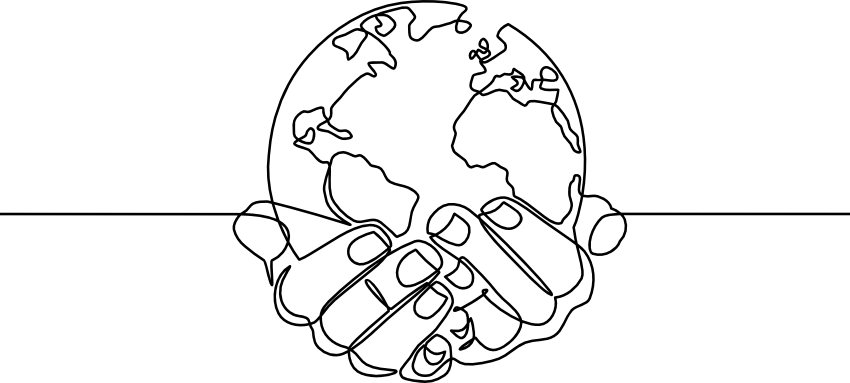“My goal is to motivate people”, explained Marie Nele Wolfram, one of the three trainers of the Impulse Boost Camp. “That definitely worked out this year. The participants left the seminar with the awareness of global problems such as climate change but instead of being depressed about the situation they went home with feeling that when humans work together, they can achieve anything.”
22 young people from Tunisia, Turkey, Germany, Romania and Spain participated in this year’s Impulse Boost Camp that took place from August 14th to 21st in Schneeberg, Germany. The 18 to 27 year olds had different experiences in voluntary work and were thus able to learn from each other.
Take for instance Joshua Kriesmann from Berlin founded an organisation that connects high school students with refugees. Sergan Kasapoğlu is active in different queer and gender projects in Istanbul. Asma Chaouachi from Tunis organises political youth cafés in Tunisia where young people come together and talk about politics. Together they reflected on ways how to counter terrorism, how to strengthen LGBTQ wings in parties or possibilities to reduce stereotypes with participatory events. Next to brainstorming on new possible project ideas, the participants tried out several methods of non-formal education (Art of Hosting, Theory U). When the participants and their teams have a specific question to answer, e.g. how to develop a project further, then can now make use of the World Disney method to brainstorm and plan at the same time. Different communication methods were also part of the seminar schedule. The moments where you could really see how people were moved and experienced a Heureka-moment was during the sessions on personal development and when they figure out what role they have in their teams and what next step to take to bring their vision into reality. In the Open Space sessions there was time to meditate, go for a silent walk in the mountains or talk about current political events.
Impulse Boost Camp takes place in a seminar house in the Saxonian Ore Mountains. The fact that the seminar house is filled only with IBC participants makes it able to create a comfortable and familial atmosphere. In order to reflect upon the own consumption and climate change, two IBC attached cooks prepared nothing but regional, vegan, organic food. Even the meat lovers appreciated the food: “If someone would cook this food for me at home, I’d become a vegan immediately.”
“How would you describe IBC?” That was one of the questions in the IBC evaluation form. One answer was simply: “A great experience.” Impulse Boost Camp took place the second time in 2017 and is a follow-up training from the “Fit for the future” project series from ifzw impulsstiftung. It was implemented in cooperation with ASA-FF e.V. and part of a German Demokratie Leben funded project.
All results of IBC 2017 are captured in our Method Reader.
IBC 2017: Ergebnisse im Methodenreader zusammengefasst
Du möchtest nachschauen, welche Methoden man in einer Gruppe zum Kennenlernen einsetzen kann? Du möchtest wissen, wie man Missverständnisse in einem Team vorbeugt oder aufarbeitet? Du suchst Energizer für ein Seminar? Lies jetzt alle Methoden des Impulse Boost Camps im Methodenreader nach.
Das IBC, unser internationales Multiplikator*innen-Seminar für junge ehrenamtlich Aktive, arbeitet mit dem Prinzip der Selbstorganisation: Die Teilnehmenden übernehmen in Eigenverantwortung Aufgaben, die der ganzen Gruppe zu Gute kommen. Eine Aufgabe, die bereits seit Jahren besteht, aber noch nie ganzheitlich erledigt wurde, ist die der “Method Group”. Teilnehmende sollen stichpunktartig die benutzen Methoden aufschreiben und zusammenfassen – die sicher umfangreichste und anspruchsvollste Aufgabe der sogenannten Self Organisation Tasks. Die Methodengruppe des letzten IBCs war die erste, die es tatsächlich geschafft hat einen Methodenreader zu erstellen. Die IBC-Alumna und Kunststudentin Roxi Morar aus Rumänien hat die Methodenbeschreibung visuell umrahmt. Das Ergebnis kann sich sehen lassen und bildet eine gute Grundlage für die Arbeit der zukünftigen Methoden-Teams. Vielen Dank an alle Beteiligte!
